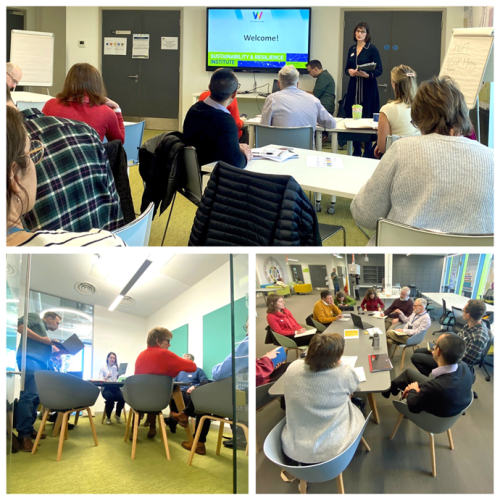9 July 2024

Air pollution and health inequalities
Air pollution is estimated to cause around 40,000 deaths per year in the UK, and its estimated annual cost is £20bn (1). It is linked to major health challenges of our day such as heart disease, asthma, COPD (chronic obstructive pulmonary disease), lung cancer, diabetes, and dementia (1).
The effects of air pollution are not experienced equally, this is what is known as health inequalities. Certain groups of people are more vulnerable to the effects of air pollution:
“Those most vulnerable to the effects of air pollution are most often, the least likely to have generated that pollution (2)”
The role of HIW
Health innovation networks were established to deliver a step-change in the way the NHS identifies, develops, and adopts new innovative products and services.
Health innovation networks improve patient and population health outcomes by translating research into practice. They have a unique opportunity to align education, clinical research, informatics, innovation, and healthcare delivery to improve patient care.
HIW helps improve health outcomes, reduce inequalities, and generate economic growth by bringing together health and social care services, academia, and industry, to support the adoption and spread of evidence-based innovation. Its delivery plans are aligned to NHS priorities to build strong and effective Integrated Care Systems.
The needs of the community are at the centre of everything we do at HIW: facilitating whole-life and whole-pathway improvements to meet the priorities of the systems supported, underpinned by core programmes that support systemic change.
We identified the opportunity to integrate improving air quality further into the local delivery plans led by our Innovation Adoption Team. Alignment was identified with the following programmes, although the list is not limited:
HIW and the aim of the Clean Air South Network
The Network aims to bring together experts with an interest in research, innovation, policy change and education to address the impacts of poor air quality on the Central Souths local population and inform improvements.
UoS is leading an evidence-based report into the state of air quality in the Central South. A major activity of the Clean Air South Network is to oversee the report and help take forward its findings.
The report, which is being sponsored as part of the University of Southampton’s Civic Impact activities, will consult on policy recommendations that civic partners, including leaders in health and local government, can take forward to improve the quality of the air we breathe.
The report authors are Professor John Boswell, Co-director of Centre for South, and Adam Meylan–Stevenson, PhD candidate in Politics in the School of Economic, Social, and Political Sciences, University of Southampton.
The report will identify gaps in research which are restricting deeper understanding of air quality and its impact in the region. It will be presented at the Clean Air South Network Symposium in July, where members will have the opportunity to add to the report and discuss the emerging gaps.
Future activities of Clean Air South
The next Clean Air South Network’s Symposium is being held on Tuesday 16 July 2024.
References
News archive
For more info, contact the communications team:
(023) 8202 0858